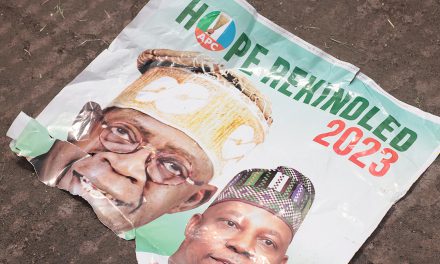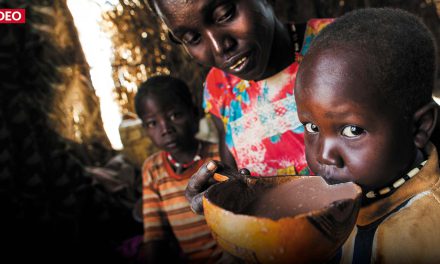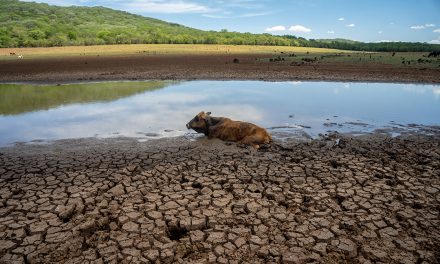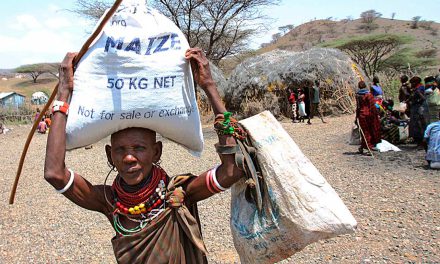South Africa needs a fast, reliable solution that can immediately help mitigate the effects of load-shedding and stabilise the energy transmission grid. The economy has been crippled by regular load-shedding and unplanned power outages. In addition to the negative effects on our economy — conservative growth estimates for Q1 2023 point to a 0.4% decline in GDP — rolling power outages have affected public safety and disrupted lives.
At face value, Karpowership, a Turkish company seeking to supply 1.2 gigawatts of electricity using floating gas to power plants anchored in Richards Bay, Saldanha, and Coega, would seem a potential solution to the country’s electricity woes. But recent allegations by the Department of Forestry, Fisheries, and the Environment that Karpowership deliberately attempted to circumvent environmental regulations and misled the department raises a number of red flags.
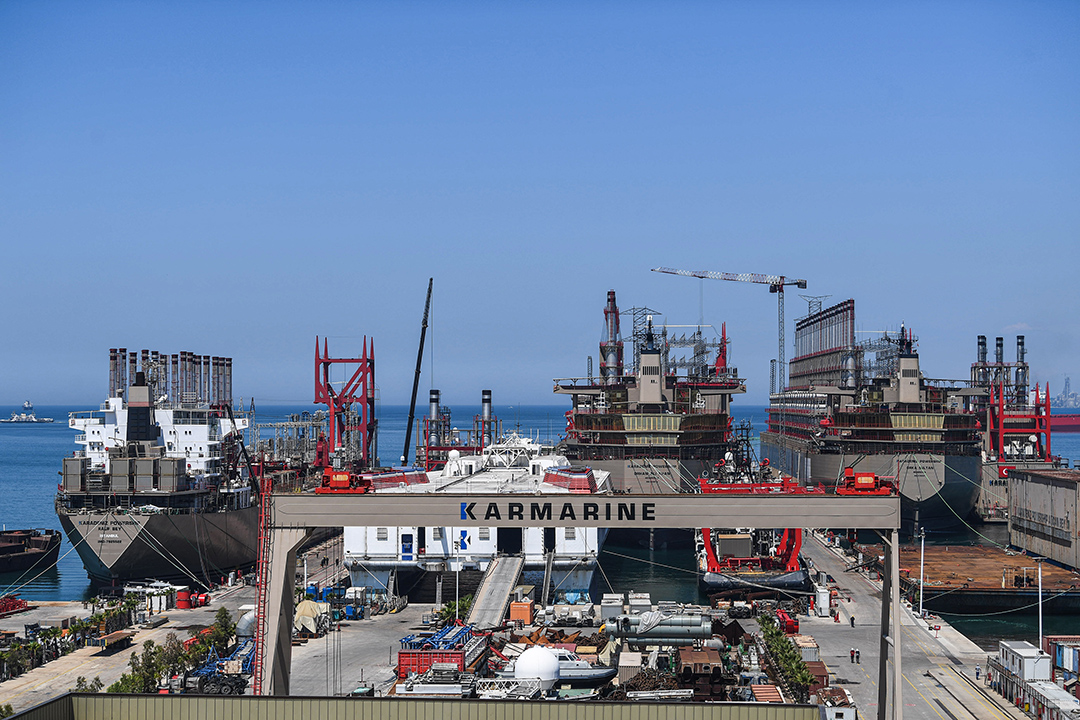
A general view of Karpowership company’s shipyard with powerships at Altinova district, in Yalova, Turkey (2020). The Karpowership contains a power plant ready to be deployed within a few weeks anywhere in the world. Photo: Ozan KOSE/AFP
This is not to say that there should be no means to pursue gas alternatives to the current power configuration.
More than 85% of the country’s electricity is generated through an ageing fleet of coal-fired power stations. A power system dominated by renewable energy technologies would be the most cost competitive in the long term and stand the highest chance of ensuring South Africa meets its net zero emissions goal by 2050.
In line with its nationally determined contribution (NDC), South Africa has committed to a fixed target for greenhouse gas emissions levels. But renewable energy sources depend on variable natural resources such as wind and sun availability. This means that significant investment in storage technology is required before renewables become a viable source of power for the country. But this barrier is easily overcome through strategically located generation sites. Less easy to overcome is the configuration of the national transmission grid, which is essentially designed to ingest power from the country’s coal heartland, Mpumalanga. It would cost in the region of R16 million a kilometre of cable to upgrade the grid and ensure ingestion from places like the Northern Cape, which are the most efficient generating sites for solar at utility scale.
Eleven years down the line, the Renewable Independent Power Producer Programme (REIPPP) has made little progress towards its push for more power into the national grid using renewable energy resources. The stalling of rounds five and six of this programme are a travesty, given the initial success of the programme as a transparent, cost-effective public-private partnership to deliver devolved power to the country.
Aside from apparent political interference, the reality is that much of the potential generation capacity is obsolete because of the grid configuration problems. In the last bid window, nearly 9.6GW of power was bid. Only 860MW were approved. That is less power than a large metro requires to operate. It is also, as the chair of research-led consulting firm Intellidex, Stuart Theobald has pointed out, a mere 17% of the total 5.2GW envisaged by the round.
As a medium-term solution, then, fossil fuels will continue to play a role in the country’s energy supply mix. In this regard, natural gas was included in the International Resource Plan (IRP2019) as a necessity for our country’s energy future. A 2019 report by the International Energy Agency is largely positive about gas as a transition fuel because it is not as carbon-intensive as coal. But the report also cautions that although gas “can bring environmental benefits, it remains a source of emissions in its own right and new gas infrastructure can lock in these emissions for the future”.
Gas should, therefore, be used in limited volumes to provide short-term needs but still enable a larger and faster scale-up of renewables. It should be used as only a temporary measure and at very low rates in line with a long-term plan to replace gas with greener alternatives as soon as the barriers to uptake and current inefficiencies (such as storage technology) can be overcome.
Under the Risk Mitigation Independent Power Producer Procurement Programme (RMIP4), Karpowership could supply 2 000 megawatts to the power grid, alleviating some of the problems faced by business and the economy. In September 2021, the National Energy Regulator of South Africa (Nersa) granted Karpowership three licences that would see the company generate more than 1 200 additional megawatts in a 20-year contract, estimated to cost in excess of R200 billion.
Despite Karpowership’s promise as a solution to the current power supply gap, there are some critical issues that remain unaddressed.
First, the Karpowership project is estimated to cost more than R200 billion, which Nersa has refused to provide details of, citing confidentiality as an excuse for non-disclosure. For a country that is battling corruption and seeing a significant decline in accountability and transparency, this raises eyebrows about the discussions between Karpowership and Nersa. Allegations about Karpowership’s historical involvement in corruption (which the company has denied) should be subject to public scrutiny and, given the significant capital outlay demanded by the project, absolute transparency is needed.
Second, there are environmental concerns that raise further alarm about how the company intends to operate. For example, Karpowership misrepresented the views of small-scale fisheries in one of its applications and has so far failed to demonstrate how it will comply with the environmental laws and deliver climate justice to those who will be affected. Approving the company’s application could set a bad precedent for fossil energy companies wanting to neglect the environmental impact of their operations in the country. The Department of Forestry, Fisheries, and the Environment’s refusal to approve environmental authorisation for Karpowership’s projects reiterates the department’s commitment to ensuring all projects meet the country’s strict environmental protection standards.
Although natural gas will play a role in South Africa’s energy future in the short and medium term, the Karpowership project should be treated with a high degree of caution. The company has a poor reputation, the price of the deal is exorbitant and the 20-year term is suspicious. Mineral Resources and Energy Minister, Gwede Mantashe has suggested limiting the contract to 10 years, but this misses the point. Research from the government-funded entity, the Centre for Scientific and Industrial Research, has indicated that renewables should be pursued as a priority investment for optimal long-run returns, while short-term natural gas supplementation can be acquired from Mozambique. This would be far more cost-effective than the proposed Karpowership deal. To better use gas as a transition energy source, more work is needed to evaluate exactly where the best gas opportunities lie and how to best integrate them into our system. Moreover, any pathways towards attaining an optimal energy mix need to be free from any political interference and fully transparent.
The energy crisis has to be resolved. But crises also typically create opportunities for unproductive rent-seeking. Governance cannot be abandoned simply because rolling blackouts are economically destructive. Clearly, Karpowership is not the best bid to resolve the current energy crisis. South Africa has an existing gas infrastructure that can be more optimally leveraged. Either way, the IRP needs to be updated to reflect what the science suggests is the most optimal energy mix for the country. Deciding on that mix also requires an understanding of the pathways required to attain it and the opportunity costs associated with each pathway. To begin with, however, investing in grid reconfiguration seems a more sensible governance decision than being locked into sub-optimal deals with the likes of Karpowership.
Leleti Maluleke is a Researcher for our Human Security and Climate Change programme. She completed her Bachelor of Political Science in Political Studies in 2017, and her Honours in International Relations in 2018 at the University of Pretoria. She started her career at International SOS in the Security Services department as a Political Risk and Security Intern. Socially, her countries of interests include Mozambique, Zimbabwe, Zambia and Malawi.



